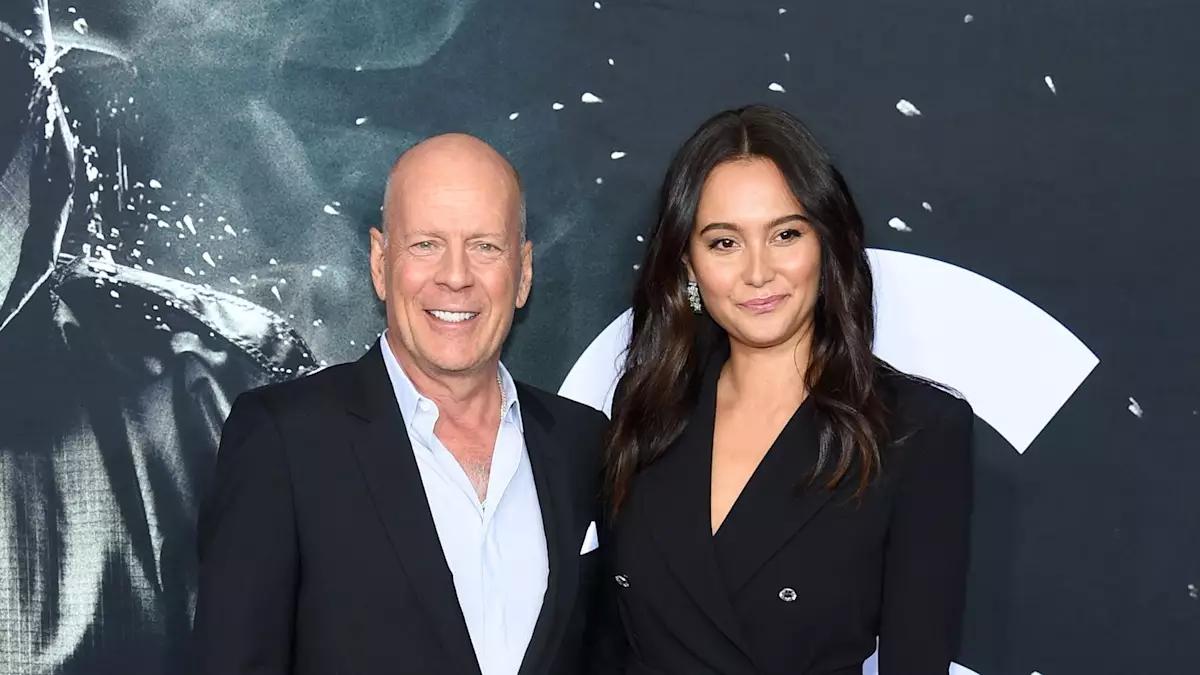In the wake of the tragic passing of legendary actor Gene Hackman and his wife, Betsy Arakawa, Emma Heming Willis took to social media with a poignant message that resonates deeply within the realm of caregiving. As the spouse of actor Bruce Willis, who has been struggling with frontotemporal dementia, her insights are not only timely but also strikingly relevant. Emma’s sentiments highlight an uncomfortable truth about the world of caregiving: those who care for others often neglect their own well-being in the process.
Caregiving is an unsung challenge that is frequently overlooked. It is a role laden with emotional and physical fatigue, yet society tends to brush aside the notion that caregivers, like all humans, require support and care of their own. Emma’s powerful declaration that “caregivers need care too” serves as a vital reminder that the emotional and mental toll of caregiving can be overwhelming. It’s easy to assume that caregivers have everything under control; however, as Emma astutely points out, this couldn’t be further from the truth.
The Often Invisible Burden
What Emma’s reflection shines a light on is the invisible burden that caregivers carry—often with little acknowledgment from the outside world. They are expected to juggle immense responsibilities while maintaining an appearance of strength and resilience. Emma made it clear in her statement that caregivers are not infallible; they face their own struggles and moments of vulnerability. This recognition is crucial for ushering in a shift in how society perceives the caregiving role.
Moreover, Emma’s candid remarks serve as an invitation to raise awareness about the emotional and psychological stresses endured by caregivers. This discussion is particularly important amid growing concerns about mental health in general. By shedding light on her personal experience, Emma is advocating for a broader cultural understanding—one that emphasizes empathy and support for those in caregiving roles.
Lessons From Heartbreak
The circumstances surrounding Gene and Betsy Hackman’s deaths serve as a sobering backdrop to Emma’s message. Gene’s passing, attributed to a combination of cardiovascular issues exacerbated by Alzheimer’s, is a painful reminder of the vulnerability that aging and illness impose, not just on patients but also on their families. The haunting question remains: Did Gene fully comprehend the gravity of losing his partner due to the confusion wrought by his Alzheimer’s disease? This distressing possibility encapsulates the dual tragedy of illness—its impact on both the caregiver and the person receiving care.
Emma’s reflections emphasize the need for a support system that extends to caregivers. The emotional toll it takes when one is left to navigate such turbulent waters alone cannot be overstated. In her own journey as a caregiver for Bruce, she has experienced moments of deep connection interspersed with bouts of profound sadness and frustration. Her family has stepped in to provide neither haphazard support nor platitudes, but genuine understanding and a safe space to express her complex emotions.
Breaking the Stigma
Emma’s voice breaks through the stigma that often surrounds vulnerability in caregiving by normalizing the conversations around mental health within this context. The discussion needs to go beyond mere acknowledgment to intertwine action—community support, healthcare resources, and open dialogues must be part of the narrative. Caregivers need an environment where it’s acceptable to seek help, whether through professional avenues or even self-care practices.
In addition, Emma’s recent statements spur a much-needed dialogue about how society views caregiving and the importance of community engagement. There should be a collective acknowledgment that caregivers are on the front lines of compassion, yet they too are entitled to compassion in return. This mutual recognition can inspire broader systemic changes that prioritize caregiver wellbeing in both policy and practice.
Ultimately, Emma Heming Willis’s message is a clarion call for empathy and understanding—a passionate appeal for a culture that values the humans behind the caregiving roles. It begs for a deeper connection—not just with those who require care but with those who selflessly give it.

